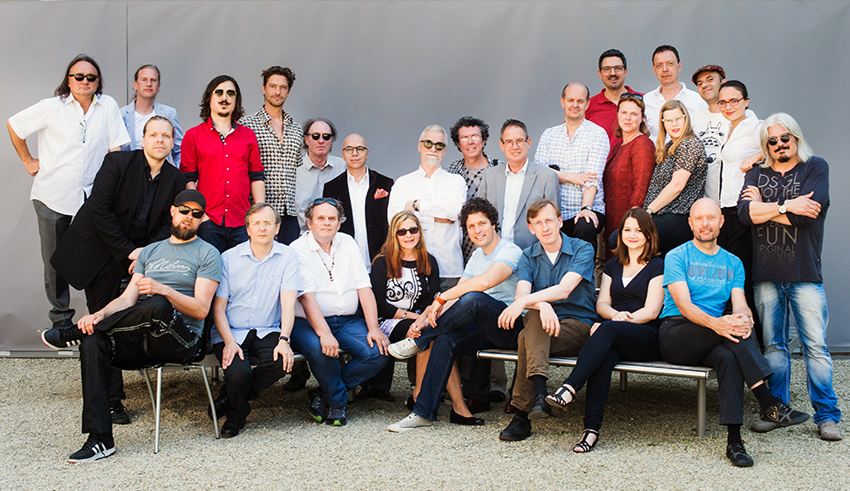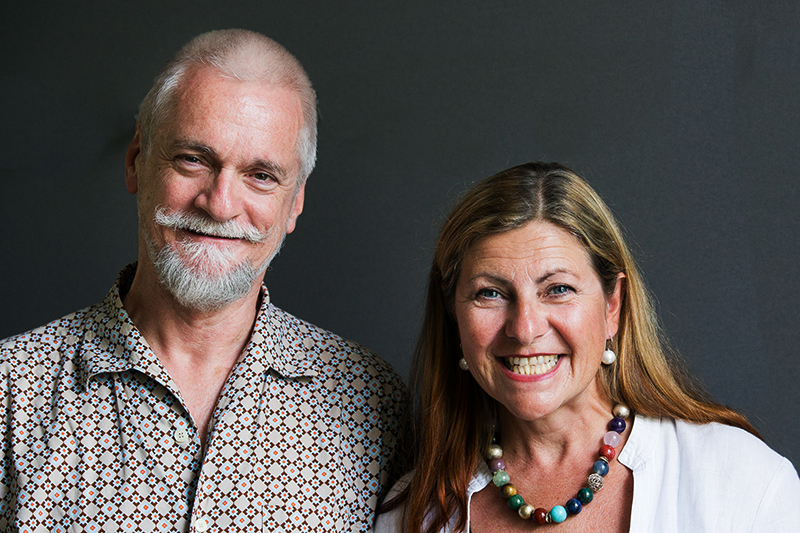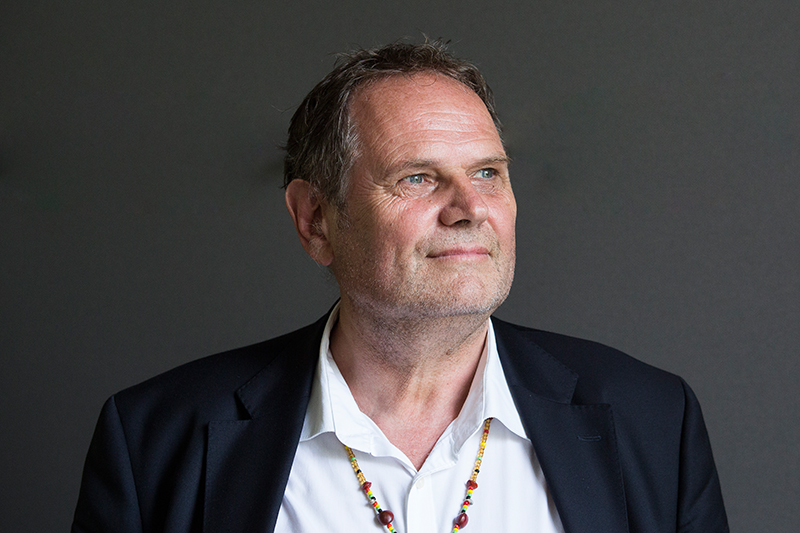An interview with the leading team of ipop
It’s really a five-member combo that’s been orchestrating the goings-on at ipop since 2009. But since Martin Fuss and Herbert Pichler were on vacation, David Baldinger sat down with the threesome of Wolfgang Puschnig, Patricia Simpson, and Harald Huber to talk about fine lines, anchor points, and matters of the heart.

What would be missing from Austria’s musical landscape if ipop hadn’t been set up in March of 2002?
Harald Huber (HH): It would be pretty awful. (laughs)
Patricia Simpson (PS): This diversity that’s possible here is something I haven’t yet seen at other institutions. And we’re nowhere near finished—I have the feeling that we’re just now coming to a boil.
HH: In the jazz arena, Viola Falb is one of ours, as are Clemens Salesny and half of Jazzwerkstatt Wien. In pop, there’s Fijuka. Groups like Federspiel and Alma are examples of world music acts, and then there’s Elektro Guzzi, who are positioned somewhere between pop and dance. So we now have countless alums who’ve gone on to do great things.
Wolfgang Puschnig (WP): There are too many to point them all out individually. And even so: our work has just begun, and we’re going to be at it for a long, long time. We’re not so concerned with skills—it’s more about an approach.

Can you put this approach in a nutshell for us?
WP: Yes: fearlessness and openness. And no thinking in cubbyholes: it’s not about stylistic firewalls, it’s about opening up. Sure, there are qualitative differences, but you eventually get to the point where even those aren’t paramount anymore.
There’s this widespread view that the art of pop can’t be taught, and that institutionalised training would smother creative eruptions and eventually lead to canonisation, paralysis, and mediocrity: What’s your take on this?
WP: That’s fundamentally true, but it’s really beside the point. Every institution has its framework. But what’s most important is the ability to convey something within this framework that
encourages rather than blocks. You can’t teach creativity according to a recipe—it’s either there or it’s not. What you can do is create the conditions that bring it out. I attended a conservatory: that was very school-like, back then, but it didn’t stop me from doing anything.
PS: It’s an ever-present question for me, too: Is the right thing really to go all-out on a degree programme if I want to be free in my music-making? It’s a fine line. I, for one, would have loved to study in this programme. Back then, I couldn’t find anything that matched my interests.
HH: This view is rooted in an old notion of what “school” is. There is a danger that the school will influence the music. But it’s not a one-way street: we musicians also change the school. And the social contact that band projects make possible, the infrastructure—things like those are advantages of a schoollike institution. And another thing: in 1969, a famous graduate of our institution refused to accept the Beethoven Ring when he was chosen to receive it. That was Friedrich Gulda. The point he was trying to make is that this institution fails to perceive the lion’s share of music on our planet. And it’s this conviction—that pop, jazz, and the whole world of popular music are significant expressions of culture—that originally set everything here in motion. We don’t see why an institution like ours shouldn’t also deal with these musical styles. And by now, that view’s been more or less generally accepted.

What does ipop mean to you, personally?
PS: For me, it’s a big part of my life. I always like coming here, and when I leave, I think: how great it is, being here and working here.
WP: I’ve learned an awful lot, here. For a long time, I’d been focussed more on my work as an artist. But working here has helped to anchor me. I’ve been able to see the fertile soil that culture grows from to begin with—that’s thanks to the communication with the students and my colleagues. And I’ve also learned lots of new things and thrown out some false concepts.
HH: For me, ipop is a matter of the heart, a life’s project. I’ve been involved since the 1970s, back then as a student rep. And gradually building all this up, developing curricula, formally founding the department in 2002, and setting up the new team in 2009—that really is something special. By way of comparison, just look at the Academy of Music curricula from the late 1970s: nothing. And today: a great department, 44 instructors, and a huge number of courses.
Where do you see ipop in 10 years? How could, should, must it change in order to remain relevant? And is there anything you’re worried about?
PS: We have so many plans and so much work ahead of us—and I’m very much looking forward to it all. There’ll be a performance degree and, of course, a rejuvenated team, new teachers and maybe even new forms of teaching.
WP: None of us will cling to our positions. We know how important it is for the apparatus to get younger. And I hope that this spirit takes root and helps make ipop even better.
HH: I hope that, for one thing, this artistic curriculum exists by then. I also hope that we’ll still have the IGP [instrumental and voice education] programme. That the department continues to be present in doctoral studies. That we actually see a new generation come to the fore. And that the department can make a contribution to how Vienna functions as a musical melting pot. It should become a creative hotspot. And in ten years, I’d also like to see even more women here. I’ll have retired by then—but I’ll keep following things from the outside.
- Find out more about the ipop in the current department magazine “Kollektion” (in German).

